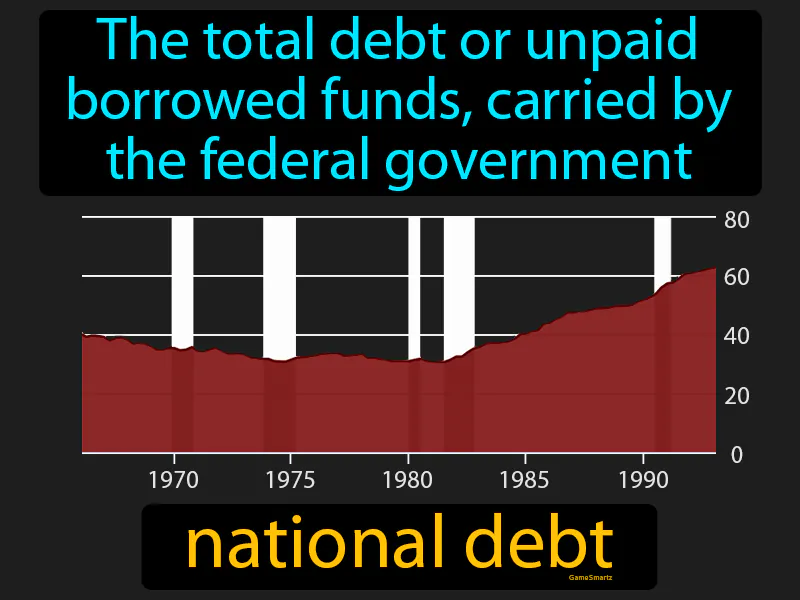National Debt
National Debt:
Between 1980 and 1993, under Presidents Ronald Reagan and George H.W. Bush, the national debt became a major issue in American politics, especially for conservatives who traditionally favored limited government spending. During this period, the national debt increased due to tax cuts, military spending, and economic policies aimed at stimulating growth, leading to debates about fiscal responsibility. This historical context highlighted concerns about passing debt onto future generations and the government's ability to fund essential programs. Today, the national debt remains important because it can influence interest rates, economic stability, and government services. For example, if the government spends more on debt interest, it might have less money for things like schools, which could affect the quality of education that students receive.

Practice Version

National Debt: The total debt or unpaid borrowed funds, carried by the federal government. National debt. National debt is the money a government borrows to cover expenses beyond its income, which has been a practice since ancient times.
